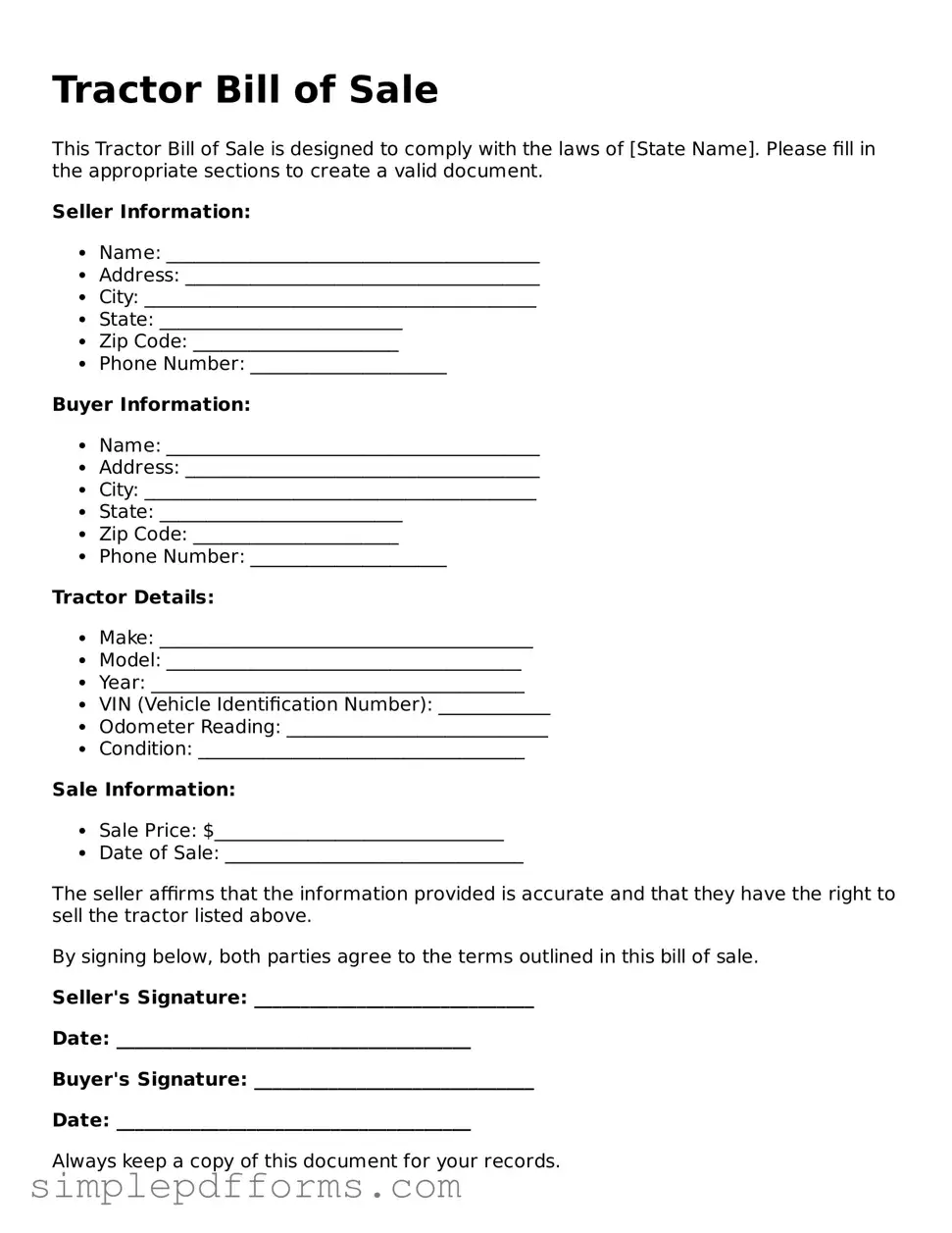Free Tractor Bill of Sale Form
A Tractor Bill of Sale is a legal document that records the transfer of ownership of a tractor from one party to another. This form serves as proof of the transaction and includes essential details such as the buyer's and seller's information, the tractor's description, and the sale price. Understanding this document is crucial for both buyers and sellers to ensure a smooth and legally binding exchange.
Open Tractor Bill of Sale Editor Now

Free Tractor Bill of Sale Form
Open Tractor Bill of Sale Editor Now

Open Tractor Bill of Sale Editor Now
or
Get Tractor Bill of Sale PDF Form
Your form is waiting for completion
Complete Tractor Bill of Sale online in minutes with ease.